 |
 |
 |
| |
Neurocognitive Assessment in Nigeria
The ICON Cohort
|
| |
| |
"42% were neurocognitively impaired....mean age was 37.5 years (SD 9.4)....Neurocognitive impairment was common and was associated with depressive symptoms"
Reported by Jules Levin
Durban 2016 July 18-22
K. Robertson1, B Berzins2, A Ogunniyi3, A Adetunji3, I. Adewole3, B. Oladeji3, O.Akpa3, V. Ogaji3, B. Monsur3, B. Chukwuemeka3,B. Taiwo2 and the ICON study team
1. UNC, Chapel Hill, NC, US, 2. Northwestern University, Chicago, IL, 3. Ibadan University, Ibadan, Nigeria.
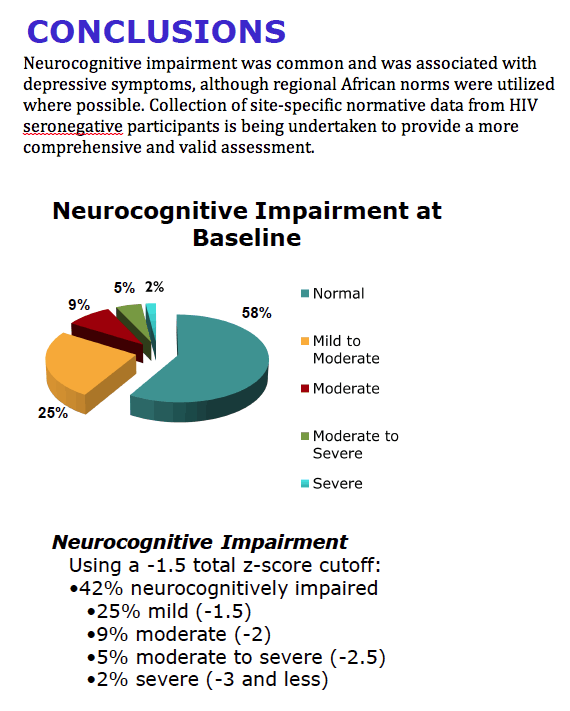
Background: Neurocognitive impairment remains prevalent despite antiretroviral therapy (ART), and is particularly concerning in resource limited settings (RLS) where access to ART is limited. Most RLS do not have the training or resources to assess neurological and neuropsychological function in participants with HIV. We trained psychometricians to conduct neurocognitive evaluations in Ibadan Nigeria, in order characterize HIV associated Neurocognitive Disorders locally.
Methods: We enrolled HIV+ participants presenting for care at the HIV Clinic, UCH, Ibadan in the longitudinal Ibadan Cohort of NeuroAIDS (ICON) study. Participants were administered a neurocognitive battery that assessed total neurocognitive functioning, and the domains of fluency, attention, learning, memory, fine motor, speed of processing and executive functioning. African specific norms were utilized where available to create normalized z scores. Depression was assessed using a PHQ 9 questionnaire.
Results: 208 HIV+ participants were enrolled in ICON. 149 were female (72%); mean age was 37.5 years (SD 9.4); and mean educational level was 12.97 years (SD 3.1). The total z score (positive scores reflect better performance) was -1.36 (SD 0.81). Mean domain (SD) scores were fluency -1.18 (1.04), attention -2.45 (2.49), learning -1.05(1.35), memory -.73 (1.25), fine motor -.42 (.99), speed of processing -1.98 (.88), executive functioning -2.25 (1.07). Using a -1.5 total z cutoff, 42% were neurocognitively impaired. There was a significant correlation between the International HIV Dementia scale and overall neurocognitive functioning (r= .30, p< .0001) and each of the domains (p< .01). Poorer neurocognitive performance was associated with increased depressive symptoms (r = -0.14, p< .05).
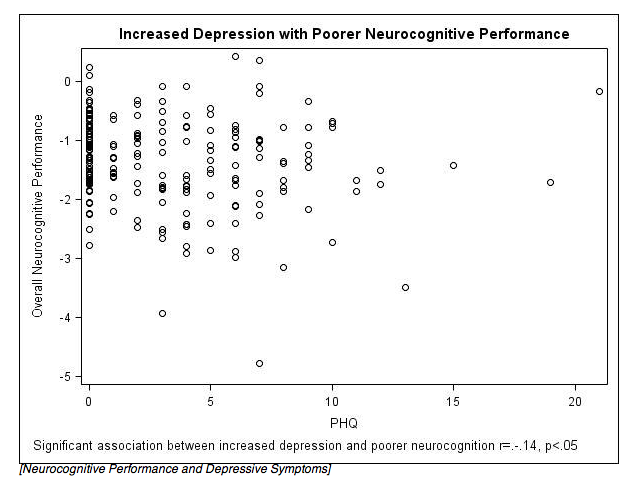
Conclusions: Neurocognitive impairment was common and was associated with depressive symptoms, although regional African norms were utilized where possible. Collection of site-specific normative data from HIV seronegative participants is being undertaken to provide a more comprehensive and valid assessment.
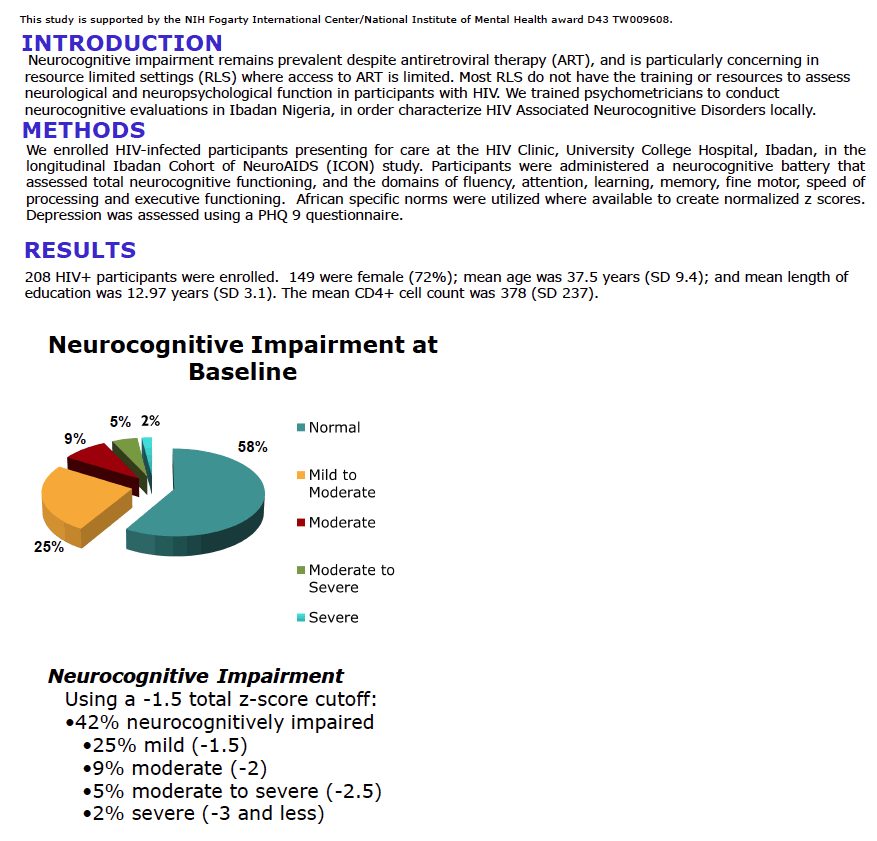
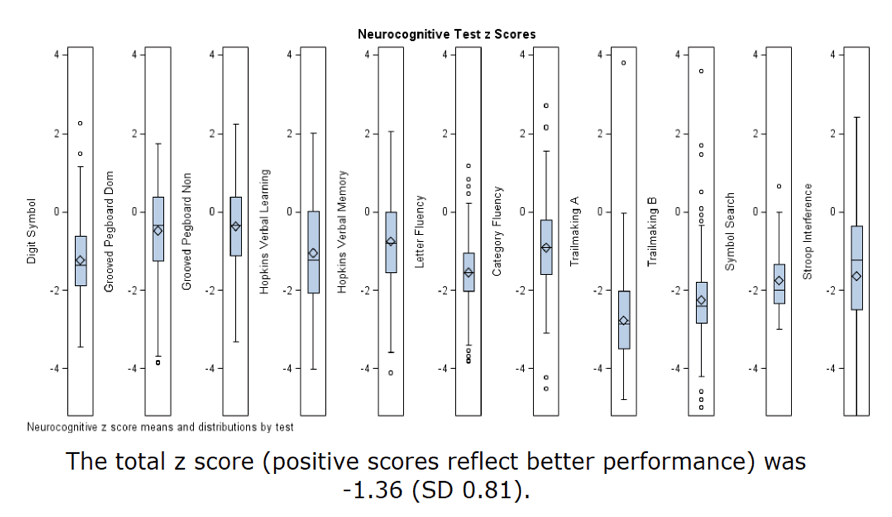
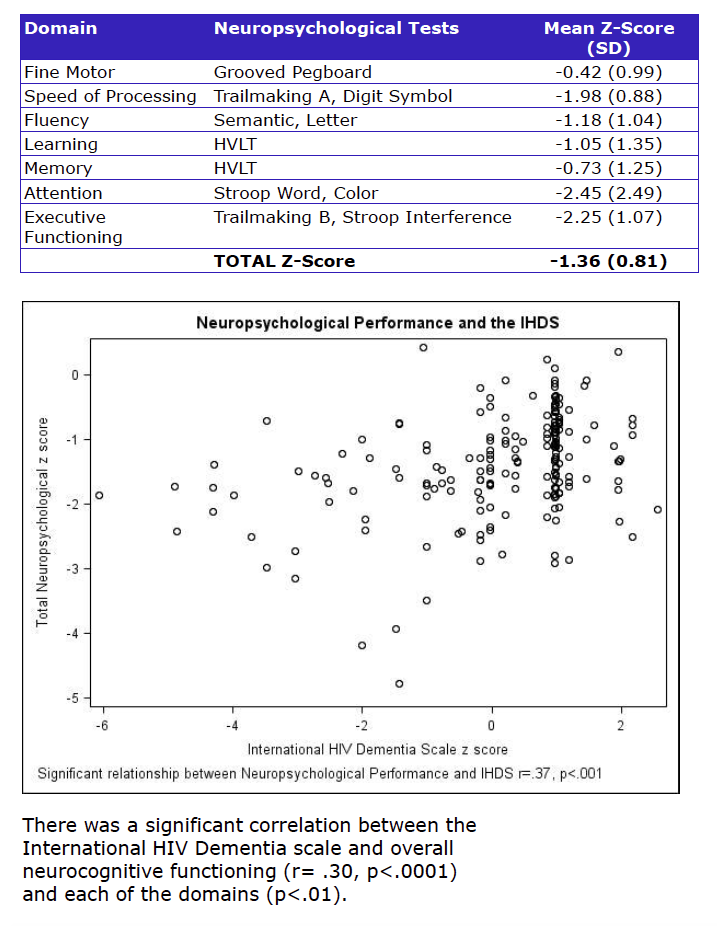
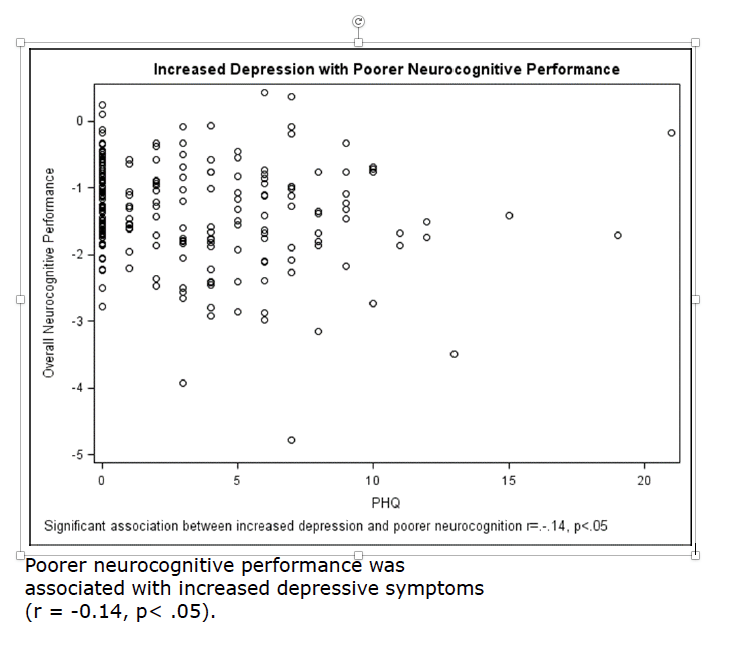
|
| |
|
 |
 |
|
|